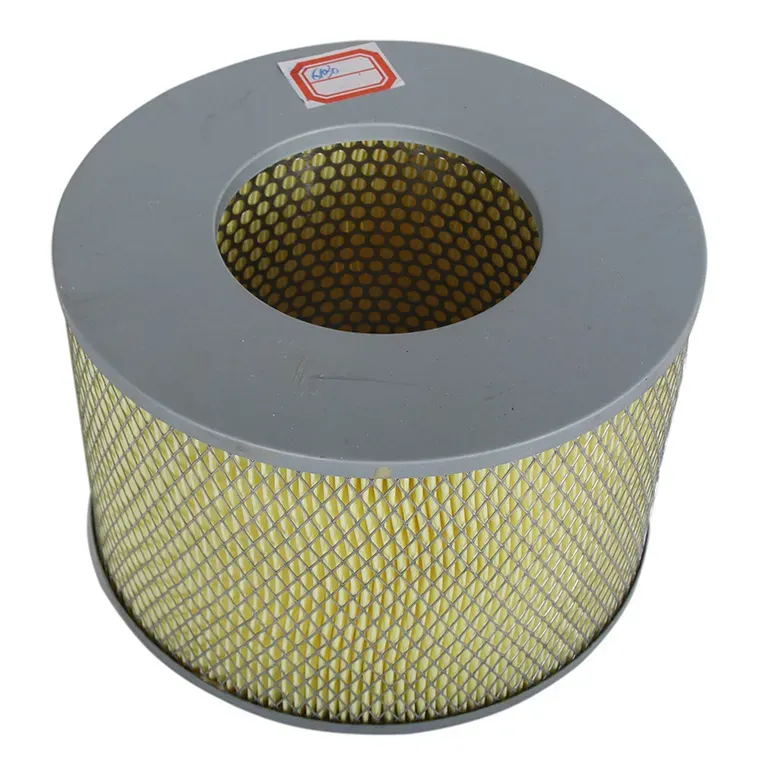
Driving should be a comfortable experience, not one plagued by unpleasant odors, allergens, or low-quality cabin air. As the world becomes increasingly urbanized, the air we breathe—especially inside vehicles—faces growing challenges. Pollution, smoke, dust, and microscopic particles can easily infiltrate your car’s cabin, impacting both short-term comfort and long-term health. Fortunately, modern air filtration systems have evolved to address these issues efficiently, offering specialized solutions that improve air quality and transform the driving experience.

Experience Cleaner Cabin Air with a Cool Intake Filter for Modern Engines
In today’s high-performance vehicles, maintaining engine efficiency goes hand-in-hand with protecting the cabin environment. A cool intake filter not only helps regulate the engine’s temperature but also prevents dust, debris, and allergens from entering the intake system. While it plays a primary role in engine performance, the cool intake filter indirectly contributes to cabin air purity by ensuring fewer contaminants cycle through the vehicle’s airflow pathways. Drivers often notice smoother engine sounds, more responsive acceleration, and cleaner air from the vents when using a high-quality intake filter designed for optimal filtration and airflow.
Enjoy Smoke-Free Drives Using a Car Air Purifier for Smokers
For drivers or passengers who smoke—or who frequently transport pets, groceries, or sports gear—an in-cabin car air purifier for smokers makes a noticeable difference. Instead of simply masking odors with artificial fragrances, these purifiers utilize HEPA or activated carbon filters to capture and neutralize smoke particles, volatile organic compounds (VOCs), and residual odors. When combined with ventilation systems, the purifier dramatically reduces airborne toxins and ensures that even long drives feel refreshing. The result is an interior environment that feels as clean as stepping into a freshly detailed vehicle every time.
Breathe Easy Every Mile with a Reliable Car Aircon Filter Installed
One of the most overlooked components of a car’s climate control system is the car aircon filter, yet its role is crucial in ensuring breathable air. Positioned within the HVAC system, this filter captures particles such as pollen, mold spores, and even bacteria, making it an essential element for allergy sufferers and health-conscious drivers. High-efficiency aircon filters also contribute to better defrosting and cooling performance, as cleaner air ducts prevent condensation buildup and mildew formation. Replacing or upgrading your aircon filter at regular intervals is a small step that leads to significantly improved air quality and long-term HVAC efficiency.
Safeguard Performance with a Multi-Layered Vehicle Air Filter
The vehicle air filter is more than just a barrier for dust—it’s a vital component that protects the engine, enhances fuel efficiency, and reduces emissions. Modern vehicle air filters are constructed from advanced synthetic media capable of trapping even the finest particles while allowing maximum airflow. For drivers who navigate urban centers or dusty rural roads, a robust air filter can extend the lifespan of engine components, reduce fuel consumption, and limit wear on internal parts. More than a mechanical safeguard, it plays a pivotal role in the vehicle’s overall ecological footprint by supporting cleaner combustion processes.
Maximize Internal Cleanliness with the Right Vehicle Filter Setup
Air quality inside your vehicle depends on more than just one part—it requires a comprehensive vehicle filter system working in harmony. This includes cabin air filters, engine air filters, oil filters, and fuel filters. Together, they create a multilayered defense against both internal and external contaminants. Cabin air filters shield passengers, engine filters safeguard mechanics, and oil and fuel filters protect against impurities that can clog injectors or corrode internal systems. Upgrading your vehicle’s filter system holistically means better performance, fewer repairs, and a cleaner, healthier ride for everyone onboard.
What Makes a Cool Intake Filter Essential for Performance?
A cool intake filter helps manage engine air temperature and filtration simultaneously. It reduces the risk of overheating while filtering airborne debris, providing a balance of performance and protection.
How Does a Car Air Purifier for Smokers Work?
These purifiers use carbon filters or HEPA-grade filtration to trap smoke particles and neutralize odors. Unlike simple air fresheners, they eliminate contaminants rather than cover them up.
When Should I Replace My Car Aircon Filter?
Most aircon filters should be replaced every 10,000 to 15,000 kilometers, or sooner if driving in high-pollution areas. A clogged filter leads to reduced airflow, unpleasant odors, and inefficient climate control.
Is There a Difference Between a Vehicle Air Filter and a Cabin Filter?
Yes. The vehicle air filter protects the engine, while the cabin filter protects passengers. Both are essential and should be maintained regularly for optimal vehicle function and comfort.
Cool Intake Filter & Vehicle Filter Solutions FAQs
Q: Does using a cool intake filter improve fuel economy?
A: Yes. A clean and efficient intake filter improves engine air-fuel mixing, which can enhance fuel efficiency and power output.
Q: How effective is a car air purifier for smokers at eliminating tobacco smells?
A: Very effective. With the right filter media, these purifiers can capture 99% of smoke particles and significantly reduce lingering odors.
Q: What happens if I don’t change my car aircon filter?
A: Ignoring filter replacement can lead to unpleasant smells, reduced airflow, and even mold growth inside the ventilation system.
Q: Are vehicle air filters different based on car type?
A: Yes. Filters vary based on engine size, manufacturer specifications, and whether the vehicle is designed for urban, off-road, or high-performance use.
Q: Is it necessary to upgrade the entire vehicle filter system or just one component?
A: For optimal performance and air quality, upgrading all critical filters—engine, cabin, oil, and fuel—is recommended, especially for older or heavily used vehicles.
-
Vehicle Performance with Premium Car Filter Solutions소식Jul.02,2025
-
Upgrade Engine Performance with Timely Air Filter Maintenance소식Jul.02,2025
-
Optimize Vehicle Health with Timely Air Filter Replacement소식Jul.02,2025
-
Every Drive with Next-Level Car Filtration Systems소식Jul.02,2025
-
Cleaner with Next-Generation Automotive Air Filtration소식Jul.02,2025
-
The Importance of Cabin Filter and Engine Filter: The Role and Maintenance of Cabin Filter and Engine Filter소식Jun.25,2025
-
Gasoline Filter: Key link to ensure the safety of automotive engines소식Jun.25,2025
관련된 제품




